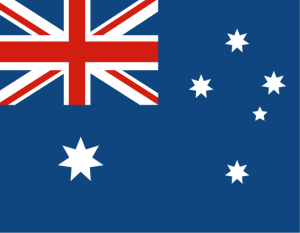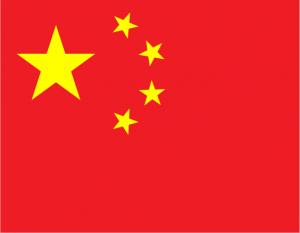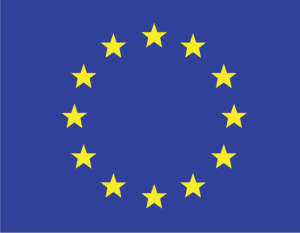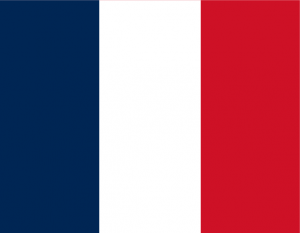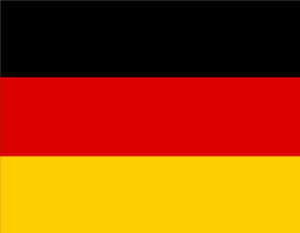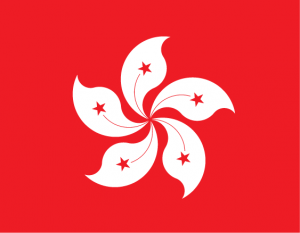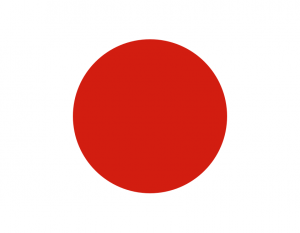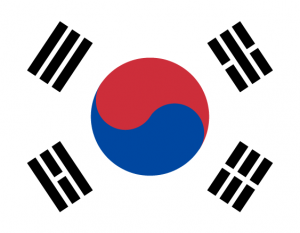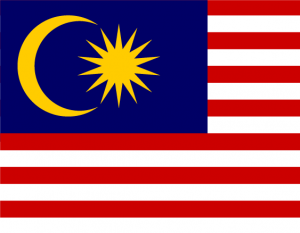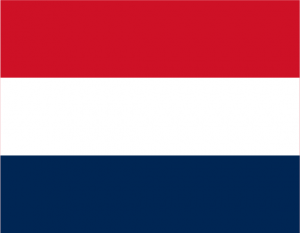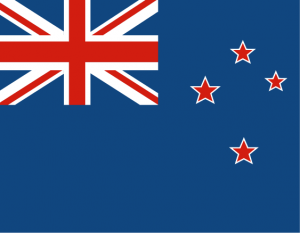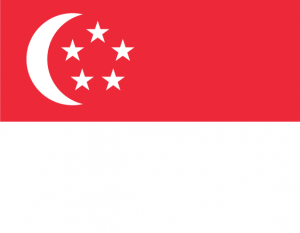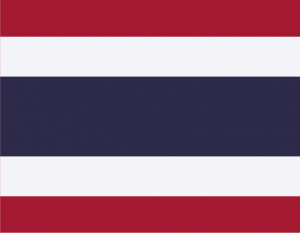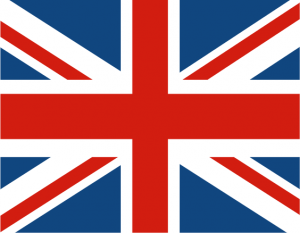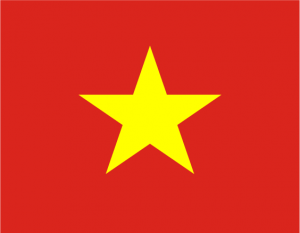Home > Help & Support > FAQs
Frequently asked questions
Most common general questions
How do I open an account with you? How long will it take?
Opening an account online should only take a few minutes and we can usually get you up and running within an hour (we’ll need to verify your identity). If you need support, use our live chat facility or give us a call on +44 207 801 1065 (local call rates and charges apply).
How much can I transact with WorldFirst?
Can I fix an exchange rate for a future date?
Yes, you can lock in a rate now for a date up to three years in the future. This is often called a forward contract. You will need to pay an initial deposit and then the balance will be due at the end of the contract. If the rates move against you, you may need to top up the deposit. Your dealer will explain and discuss this with you before you book your forward contract.
What if I am unhappy with the service I receive from WorldFirst?
I’ve booked a trade and want to cancel it. Can I do this?
When you book a transaction with WorldFirst you enter into a contract to purchase that currency. We then enter into an identical transaction with our bank in order to guarantee you the rate quoted.
If you no longer wish to go ahead, we will need to sell back the currency that we have purchased for you. Depending on market movements there may be a loss involved which would be passed onto you as a fee. Please call the dealing team if you have any further queries about this.
What is a margin call?
How do I let you know of changes to my personal details e.g. new address?
What is an IBAN number?
IBAN stands for International Bank Account Number. It’s a standardised way to identify a bank account and it’s used to facilitate the processing of cross-border transactions without error. It consists of up to 34 characters.
This is an example format of a UK IBAN number:
GB 29 ABCD 601*** 945*****
[Country code] [Check digits] [Bank code] [Branch code] [Bank account number]
Read our detailed guide for more:
What is a SWIFT / BIC code?
SWIFT codes are not the same as sort codes.
A SWIFT code (sometimes also called a SWIFT number) is an international bank code that identifies banks all over the world for international payments. It is also known as a Bank Identifier Code (BIC).
A SWIFT code is a set of 8 or 11 characters (numbers and letters) that represents a bank branch, and is made up of the first three or all four of the following:
- Bank code
- Country code
- Location code
- Branch code
What is the difference between IBAN and SWIFT?
A SWIFT code is used to determine which bank account you are using when you are transacting, while your IBAN identifies the specific bank you are using to make a payment or transfer.
Read more in our detailed guide:
What is an ABA number?
When making a money transfer to the USA, you’ll need to ask for your payee’s ABA number.
An ABA number, also known as a bank routing number, is a nine-digit code that identifies banks in the U.S.
What is a telegraphic transfer
A telegraphic transfer, or TT, is a way of sending funds electronically. Also known as telex transfers, the name harks back to when sending money meant sending a printed message using a teleprinter. TT transfers today are online and one of the fastest ways to make an international money transfer. They are primarily used for overseas wire transfers.
What are SEPA payments
The Single Euro Payments Area (SEPA) was set up by the European Union to simplify making electronic cross-border payments. Individuals and businesses can make payments in euros within the Single Euro Payments Area as easily as in their own country. This includes transferring money by SEPA direct debit and credit transfers. Read more about SEPA payments.
What is a beneficiary
A beneficiary is the person or organisation you wish to pay. Also referred to as a payee.
How does your pricing work?
We offer easy and secure international business payments with competitive pricing.
Contact our dedicated customer service team for more information.
Security
I suspect my beneficiary to be fraudulent, what should I do?
Log the incident with the appropriate local crime authority as soon as you have reason to believe the payment is fraudulent. It is also essential that you make your relationship manager aware as soon as possible, as this will give us a better chance of recovering funds.
How do I authenticate to make a payment?
How long can an investigation into fraud take?
There are many factors which can contribute to how long an investigation can take, such as the number of intermediary banks involved in the payment journey, if incorrect details have been supplied, or if a bank is holding the payment.
We assure you that WorldFirst will continue to keep you updated on the progression of the investigation; each case is reviewed on a two-day basis.
Is Two-Factor Authentication (2FA) and Secure Customer Authentication (SCA) mandatory?
For extra security, all WorldFirst clients who live in the EEA, or who have signed up to WorldFirst UK, need to complete additional authorisation at the following stages online:
- Login
- Adding or managing beneficiaries (payees)
- Instructing a payment or booking a trade
For more information on SCA, SMS authentication and Authy Authentication, visit our PSD2 page.
Are you regulated? Is my money safe with you?
Yes and yes. Ensuring the safety and security of your money is central to our business. We comply fully with all relevant regulations and ensure your funds are appropriately segregated from business funds in line with requirements.
We are authorised and regulated by the FCA and are required to hold sufficient capital to protect our business and further safeguard our customers.
If you’d like a bank reference for us please give us a call, we’d be happy to oblige. You can find out more about where the companies under the WorldFirst Group are registered on our Regulation page.
International Collections Account (formerly World Account)
How do I open a local currency account?
What is 'proof of account ownership'?
How do I request proof of account ownership for my local currency account?
Read our step-by-step guide on ‘proof of account ownership’.
What happens after I register?
Our client service team will contact you directly by phone within one working day after you register online.
What's the shortest amount of time I can have an account for?
There is no minimum time for holding an account with us. If you want to close any of your accounts, please email etailers@worldfirst.com to let us know. Please note that no account is closed until you receive email confirmation back from us.
We reserve the right to close accounts that have not been used for an extended period. If this is the case, we’ll contact you by email to notify you.
How do you keep me updated on my account balance(s)?
You have online access to your accounts 24/7, so you can log in and view current balances and credits any time you like.
Do I have a login to access my balance?
Yes, you can view your balances when you log in to your account.
How long do payments take to credit my account?
This mainly depends on the beneficiary bank. In most cases, funds will be sent by WorldFirst on the same day that you execute a transfer, depending on the currency being sent, and will often credit UK, US or European accounts the same or next day.
For same-day payment, your money needs to be with us by the ‘cut off’ time (EUR payments: 13:00, GBP payments: 14:00 and USD payments: 14:00).
The payment (or “value”) date will be clearly shown on your dashboard before you confirm any transfers and in the accompanying trade confirmation email.
We will do everything reasonably possible to ensure that funds arrive on time but we’re not liable for delays caused by intermediary or receiving banks.
Can I get a breakdown of deposits into my account?
Yes. You can view all incoming and outgoing funds for all of your accounts by clicking on the ‘Your statement(s)’ tab on your central dashboard.
Are the receiving account details unique to me?
Who can send money to this account?
The accounts are authorised to receive funds from approved online marketplaces and payment gateways. If you are unsure whether the marketplace you’re selling on is approved, please get in touch to speak with your relationship manager.
If you are an online marketplace, find out how to be included in our list of approved marketplaces, by visiting our Partners page.
Can I withdraw cash from the account?
No, this account can only be used for bank-to-bank transfers.
In which countries can WorldFirst open receiving accounts?
We can open receiving accounts in the UK, USA, Netherlands, Canada, Australia, New Zealand, Hong Kong, Singapore and Japan. These accounts are authorised to receive funds from approved online marketplaces and payment gateways.
Will there be any additional delays using your service?
There shouldn’t be any additional delay with us. In many cases, our customers report receiving funds sent by online marketplaces into their International Collections Account quicker than if they were using their own domestic bank accounts.
Do you provide credit card details and an address?
WorldFirst does not provide you with a credit card or an address. Please speak to your marketplace contact when you upload the account details we give you. They will be able to help you or direct you.
How can I certify / notarise my documents?
There are many people who are able to certify documents. We can accept certifications done by any of the following individuals:
- Accountant who is a member of a recognised professional body
- Bank/building society official
- Embassy official
- Barrister
- Commissioner of oaths
- Justice of the peace
- Serving police officer or senior civil servant
- Solicitor/lawyer/barrister/advocate who is a member of a recognised professional body
- Medical doctor
- Director, officer or manager of a regulated financial institution
- Notary public
- Actuary who is a member of a recognised professional body
The certifier must confirm that:
- they have seen the original document; and
- the document signed is a complete and accurate record of the original; and
- the photograph bears a true likeness to the individual requesting the certification.
The certifier must also include all of the below information on each document that they certify:
- The date
- Their signature
- Their name and title printed clearly
- Their personal or business address
- Their contact number
- Their registration number (if applicable)
How do I receive Lazada funds?
At present, Lazada does not support sellers based outside of Asia. But we’re working on changing this.
Where can I see credit held in my account?
To view the credit held in your account, head to ‘View statements’ on your central dashboard via ‘Statements/Reporting’.
Where can I find my account details?
Details of your currency account(s) held with WorldFirst can be found under the ‘Currency Accounts’ section when you’re logged in to your central dashboard.
How can my customers pay into my account?
Your customers are able to pay funds into any of your International Collections Accounts using the details listed in your ‘Currency accounts’ section.
Why can't I book a trade with my International Collections Account?
In order to book a transaction via your International Collections Account, you must have a balance available in the ‘Currency accounts’ section.
Can I integrate with Xero?
How do I transfer between different currency accounts?
International Payment Accounts
How can I see a rate?
To see a rate, go to ‘Book a Trade’. Select the currency you wish to buy and follow the steps. You will be shown a live rate. You can then choose to book the trade and add payment details or you can cancel at this point.
I think I have made a mistake on one of my trades. Should I book it again?
No don’t book it again – get in touch with your dealer and they will have a look at it for you.
When will my payment go out to my beneficiary?
Your payment will leave WorldFirst on the day stated on your trade confirmation, as long as your payment has been received by us and has cleared.
Can I book a forward contract online?
Yes, you can. Simply book your trade in the usual way but change the date on the calendar to the date you need in the future. If you haven’t booked a forward contract before, it’s a good idea to first speak to your dealer.
You can easily book fixed forward contracts online and window and flexible forward contracts by calling +44207 326 9120 and speaking to one of our relationship managers (local call rates and charges apply)
I've booked a trade. How do I choose where I want my currency to be sent?
Use the ‘Payments from trade’ option in the menu on the left-hand side of the screen when logged in to your International Payments Account. It will show you the trades you’ve previously booked and you will be able to choose which beneficiaries to send them to.
Can I make multiple payments from one trade?
Yes. If you have already booked your trade, use the ‘Payments from trade’ option in the menu on the left-hand side of the screen when logged into your International Payments Account.
This will allow you to add as many beneficiaries as necessary to your trade. If you haven’t booked your trade, use the ‘Book a trade’ option. This will allow you to add multiple payments and book a larger trade to cover all of them.
I have several trades and wish to make one payment from them – how can I do this?
Use the ‘Payments from trade’ option in the menu on the left-hand side of the screen when logged in to your International Payments Account.
This will display your trades with remaining balances. You will be able to add a payment and then select which trades you want to use to fund it.
I need my payment to go out sooner than the online system will let me – how can I change this?
First of all, try choosing a different way of sending funds to WorldFirst. If you send funds to us by CHAPS rather than BACS, you should be given an earlier payment date.
Remember that there are some currencies we can’t buy for the same day or the day after. If you are still unsure, please get in touch with your dealer.
Payments and transfers
How long does a transfer take?
This depends on a couple of things, including the currency you’re sending or buying, the bank used and the size of the transaction.
If it’s sterling, US dollars or euros then we’ll usually make a same-day payment when we receive your funds. This will arrive fully cleared with your bank the same day though they may not credit your account until the next business day.
With other currencies, we send your payment out on the date agreed but you’ll need to allow one to four days for your funds to reach the recipient. The length of time depends on the currency. For example, for Swedish kroner, it will be one day; for Indian rupee it could be four days. Transfers to Australia and New Zealand will usually clear within 24 hours.
If you’re sending USD to another country (not the US) then you should allow up to four days for it to clear.
If you need funds to arrive by a particular date please call us for advice and accurate information for the country you are sending funds to.
In rare circumstances delays may occur. WorldFirst will do everything reasonably possible to ensure that funds arrive on time but it is not liable for delays caused by intermediaries or receiving banks.
Will you accept funds from a different source or account?
How do you pay me or my nominated beneficiary?
We are a member of SWIFT – the main system used throughout the financial world to make payments with speed, certainty and confidence. Once we’ve received your cleared funds we pay the account(s) on the agreed date. We’ll send you confirmation in a PDF to let you know everything has gone through.
Please note that the funds will arrive in the beneficiary’s account from WorldFirst, rather than your name. There will be a reference which starts with WFPAY followed by a sequence of numbers.
What payment / beneficiary details do I need to be able to send funds?
- Europe – IBAN and SWIFT
- Canada – account number, SWIFT and Transit code
- Australia – account number, SWIFT or BSB code
- New Zealand – account number, 6-digit bank code and SWIFT
- USA – account number, ABA routing number or SWIFT
- UK – account number and sort code or SWIFT and IBAN
- India – account number, SWIFT and IFSC number, reason for transfer
- China – account number, SWIFT
- Mexico – account number, (Clabe no.) and SWIFT
SWIFTs are also known as BIC codes. Please call us for information on other countries not shown.
Where do I send my money to?
Once you’ve booked your trade, you’ll receive an email confirmation which includes our client bank account details. It’ll also tell you the date on which you need to send the money to us by.
When do I have to send my money to you?
When you book your trade, you will be given a ‘funds in’ date based on the method you chose for sending funds to us. You need to make sure that your funds are with us and cleared by that date.
How do I send my money to WorldFirst?
You can send your money to us by any of these five methods:
- Online/telephone banking (faster payment): this usually arrives with us the same day or the following morning.
- BACS: a BACS payment takes two working days for funds to arrive. They will be cleared funds on the third day, which is when your payment will be able to leave WorldFirst.
- Direct Debit: if you’re sending us GBP funds, we can collect them by direct debit. Talk to us if you’d like to set one up. Once this is done, we arrange collection of the funds and it is similar to a BACS payment in terms of clearing times.
- CHAPS: a CHAPS payment is a same-day payment and will arrive with us on the day you send it.
How does the method I choose for sending funds to WorldFirst affect my trade?
We can only send payments once your funds are with us and have cleared, so if you send funds to us via a slower payment method (BACS, for example), your payment will take longer to leave. If you send your funds in via CHAPS or faster payment, your payment will leave sooner.
What is the cut-off time for sending money to WorldFirst?
You can send funds to WorldFirst at any time as long as they are cleared by the date of the outgoing payment on your trade confirmation. If your cleared funds aren’t with us, your payment won’t leave. For same-day payment your money must be with us by these times:
EUR payments: 13:00
GBP payments: 14:00
USD payments: 14:00
Take a look at our cut-off times for more information.
When will my payment go out to my beneficiary?
We’ll make the payment to your beneficiary on the date we agree when you book your trade. Your beneficiary might not be able to access the money right away as their bank might take some time to clear the funds for them.
Please note that the funds will arrive in the beneficiary’s account from WorldFirst, rather than your name. There will be a reference which starts with WFPAY followed by a sequence of numbers.
How will my payment appear in my beneficiary's account?
As we are making the payment on your behalf, the funds will arrive in your beneficiary’s account from WorldFirst and not in your name. There will be a reference that starts with WFPAY and followed by a sequence of numbers. Make sure to let your recipient know just in case they’re expecting to see the money arrive in your name.
Can I make a same-day payment?
Yes, you can book a same-day transfer for a large number of currencies and the earlier you book your trade, the better. To make a same-day outgoing payment in EUR, USD or GBP, you will need to have your cleared funds with us by the times below (given in local UK time)
EUR payments: 13:00
GBP payments: 14:00
USD payments: 14:00
If we receive your funds after these times, we will still try our best to make the payment on the same day.
Visit our dedicated page to find out more about cut-off times.
What happens if my funds don't arrive?
This doesn’t often happen, but if your funds don’t arrive within the expected timescale, let us know as soon as possible so that we can set up an investigation with our bank. We will keep you informed every step of the way.
WorldFirst can initiate a non-receipt investigation (trace) if funds have not reached the beneficiary in an appropriate time frame. These are some of the most common reason for delays:
- Further information request: our correspondent banks and/or their banking partners may request further information on a payment. It will be released when a satisfactory response has been supplied.
- Incorrect details: before launching a trace on your payment, it’s a good idea to check the payment details with your beneficiary. If the details are indeed incorrect, an amendment would be more appropriate in most cases.
- Value date: select currencies cannot credit the beneficiary on the same day as we make the payment – your account manager will be able to confirm this detail for you.
For most of our payments, you can request a copy of the outbound payment message sent to your beneficiary’s bank. This will contain all the beneficiary details that you confirmed for the payment.
All of these details will provide the beneficiary bank an opportunity to verify the payment against their own records.
For further support please contact us.
What if I want a payment to be returned?
WorldFirst may be able to initiate a payment recall on a ‘best endeavour’ basis if you require funds to be returned – just let your relationship manager know.
Also be aware that, as your beneficiary may have to authorise the return of the payment, it is essential to make them aware of their role in the investigation.
What happens if I have provided incorrect payment details?
If you have provided an incorrect account number, name, address, or payment reference before the payment is processed on our side, we may be able to change the details for you.
In cases where the payment has already been processed by WorldFirst, we may be able to issue an amendment request to the beneficiary bank, although in some instances we may have to wait for funds to return in order to reprocess the payment. The course of action will be determined by the currency, bank or destination, so we recommend you discuss this with your relationship manager.
Unfortunately, if a payment has been made to the wrong bank (if your beneficiary has provided the wrong SWIFT BIC or sort code, for example), our only options are to wait for a return of funds or to recall the payment from the incorrect destination.
Can I set up a direct debit?
For International Payment Account holders, WorldFirst is able to withdraw GBP funds from your bank account for the purpose of settling a transaction subject to a mandate being established in advance. Please contact your relationship manager for more information or email enquiries@worldfirst.com
Are my International Collections Accounts compatible with direct debit?
Currently, this is not possible.
What are WorldFirst's bank account details in order to settle a payment?
The details of the bank account you need to send your payments to will appear on the trade confirmation you get when booking a transaction. The details will differ depending on which currency you are sending, so please check the payment instructions carefully.
How do I get money into my account?
If you would like to pay funds into your International Collections Account, you can make a transfer using the details listed in the ‘Currency accounts’ section on your central dashboard.




